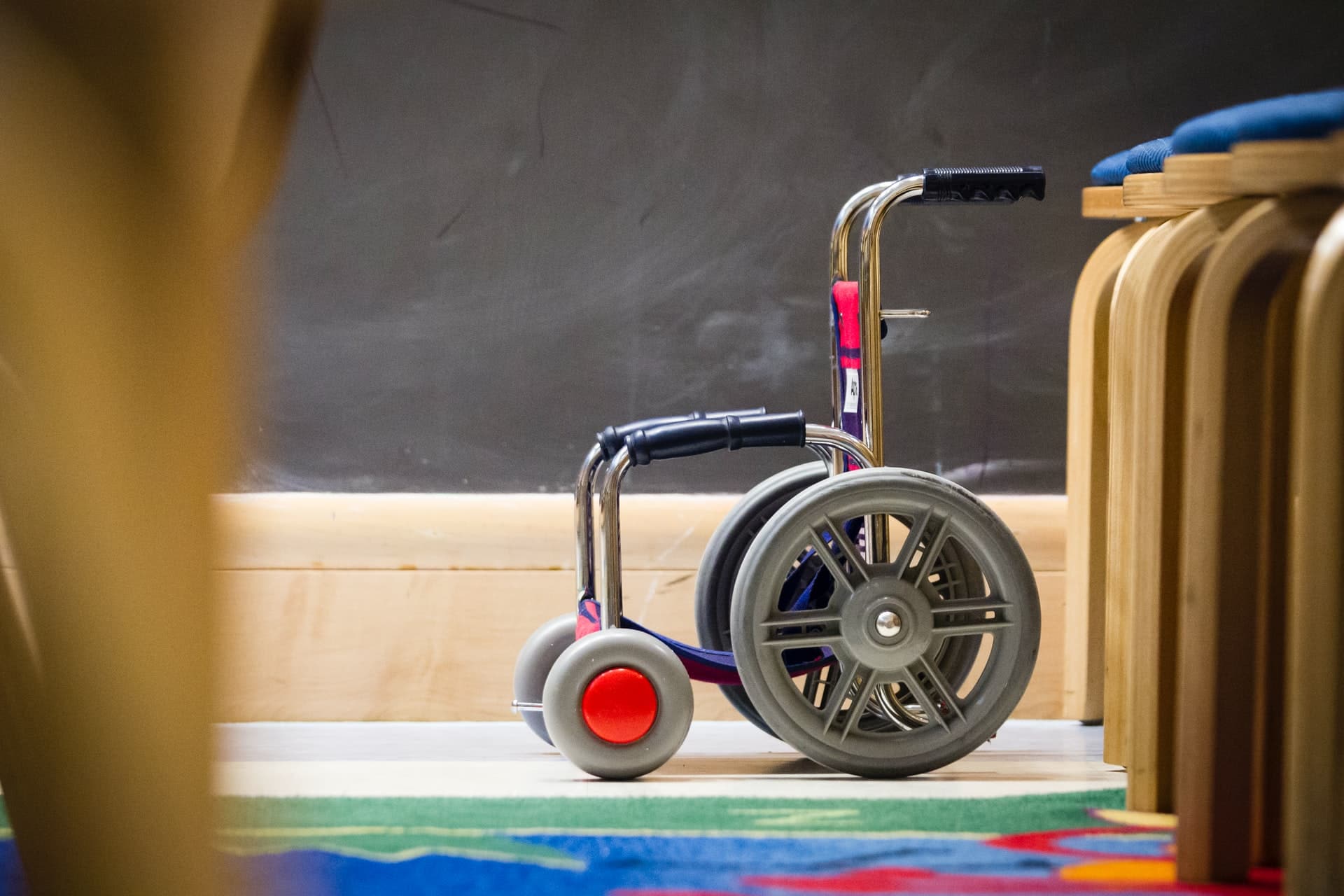Cerebral palsy (also referred to as “CP”) is a non-progressive and non-life-threatening neurological disorder that affects how the brain communicates with the body’s muscle groups. Generally, cerebral palsy can affect a person’s ability to speak, walk, eat, and perform routine daily activities and can have lifelong implications impacting a person’s posture, balance, motor functioning skills, movements, muscle control and tone. Overall, it substantially impacts both the individual living with the condition as well as their family.
To help connect and support Albertans living with cerebral palsy, Cerebral Palsy Alberta facilitates a supportive community that provides tailored services to those affected by the condition and answers questions that their loved ones and caregivers may have. Cerebral Palsy Alberta offers unique group programs for all age groups and individual counselling services to help individuals and their families understand their health needs and provide opportunities for connecting with other families, caregivers, and local agencies.
What is Cerebral Palsy?
Cerebral palsy occurs when there is damage to the developing brain due to injury, genetics, disease, or developmental disorders. The damage impacts the part of the brain that is used to coordinate and control muscle movements. The condition is a permanent but non-progressive injury, and it is not a condition that is inherited.
What Part of the Body Does Cerebral Palsy Affect?
The effects of cerebral palsy differ from one person to the next and may impact different parts of the body. Generally, there are three different terms used to describe which parts of the body are affected by cerebral palsy, namely:
- Hemiplegia (affects one side of the body);
- Diplegia (affects both arms and legs, but the legs are impacted more severely); and
- Quadriplegia (affects both arms, legs, face, and mouth).
Types of Cerebral Palsy
Cerebral palsy can take many different forms, which can be grouped into different categories. While the forms of cerebral palsy are grouped into distinct categories, many individuals have a combination of multiple forms.
Ataxic cerebral palsy is the least common form of cerebral palsy. It often takes the form of shaky and unsteady movements and impacts a person’s ability to balance.
Athetoid cerebral palsy can make it difficult for a person to control their movements and can cause muscle weakness.
Spastic cerebral palsy is a common form of cerebral palsy as it creates muscle stiffness.
Living With Cerebral Palsy
Although cerebral palsy is a life-long incurable condition, individuals living with cerebral palsy can engage in and derive benefit from different therapies. With proper care, individuals with cerebral palsy can maximize their quality of life and level of independence.
Cuming & Gillespie LLP Sponsors M N U Time Calgary
To help support individuals with cerebral palsy and their families, Cerebral Palsy Alberta offers several different types of support services, groups, events and resources throughout the province. Some of these services include:
- One-on-one support for individuals and families;
- One-on-one counselling and assistance with goal-setting, education decisions, and sourcing accessible funding;
- Telephone support, as well as in-person home and hospital visits;
- Advocacy training and support with appeals to different organizations and agencies; and
- Collaboration with local organizations and agencies to address community barriers and human rights concerns.
Youth Transitions
Cerebral Palsy Alberta also works closely with individuals between the ages of 16 to 25 to provide tailored support and practical workshops to individuals and their family members or caregivers as they transition from youth into adult life. The youth transition program helps those with cerebral palsy prepare for self-management by ensuring they or their guardian/trustee have comprehensive knowledge of their unique healthcare needs and understand what resources are available to them as they enter a new stage of life.
Me N U Time
To help support families with young children navigate the early years of cerebral palsy, Cerebral Palsy Alberta offers a program specifically designed for children aged six months to four years old. Cuming & Gillespie LLP is a proud sponsor of the Calgary program, which allows parents and caregivers to connect with other families, healthcare professionals, and other individuals living with cerebral palsy, with on-site support for children available.
Upcoming Program
For families living in Calgary and the surrounding areas, Cerebral Palsy Alberta offers a 6-week Me N U Time program session starting May 16, 2023, and ending June 20, 2023. The program will take place at the CPAA Abilities Centre in Calgary.
The Personal Injury and Medical Malpractice Lawyers at Cuming & Gillespie LLP are Proud to Sponsor Cerebral Palsy Alberta
The compassionate personal injury lawyers at Cuming & Gillespie LLP are proud sponsors of Cerebral Palsy Alberta’s new children’s program in Calgary, “Me N U Time.” Our firm works closely with individuals who have sustained personal injuries and understands the unique barriers and obstacles Albertans face when they have suffered a brain injury, neurological injury or injury due to medical malpractice. As a result, we know how important it is for injured individuals and their loved ones to feel supported, to have opportunities to connect with others, and to live as independently as possible. If you believe your child has suffered a birth injury resulting in a cerebral palsy diagnosis or you or a loved one has suffered injury as a result of someone else’s negligence, contact our personal injury/medical malpractice lawyers online or call us at 403-571-0555 to speak with a member of our team.

